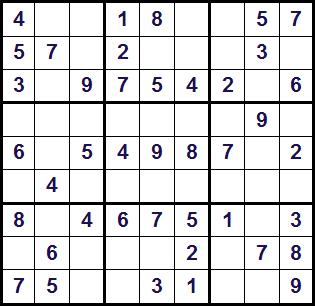九宮格分群
#-*- coding: utf-8 -*-
a = [[1,1,1,1,1,1,1,1,1], [2,2,2,2,2,2,2,2,2], [3,3,3,3,3,3,3,3,3],
[4,4,4,4,4,4,4,4,4], [5,5,5,5,5,5,5,5,5], [6,6,6,6,6,6,6,6,6],
[7,7,7,7,7,7,7,7,7], [8,8,8,8,8,8,8,8,8], [9,9,9,9,9,9,9,9,9]]
matrix = [[] for _ in range(len(a))]
count, group = 0, 0
for i in range(0, 9):
print(f"i={i%3}, count={count}")
c = 0
for j in range(0, 9, 3):
print(f" {group+c}: {a[i][j:j+3]}")
matrix[group+c].extend(a[i][j:j+3])
c += 1
count += 1
if count%3 == 0:
print('-'*20)
group = count
print(matrix)output:
i=0, count=0
0: [1, 1, 1]
1: [1, 1, 1]
2: [1, 1, 1]
i=1, count=1
0: [2, 2, 2]
1: [2, 2, 2]
2: [2, 2, 2]
i=2, count=2
0: [3, 3, 3]
1: [3, 3, 3]
2: [3, 3, 3]
--------------------
i=0, count=3
3: [4, 4, 4]
4: [4, 4, 4]
5: [4, 4, 4]
i=1, count=4
3: [5, 5, 5]
4: [5, 5, 5]
5: [5, 5, 5]
i=2, count=5
3: [6, 6, 6]
4: [6, 6, 6]
5: [6, 6, 6]
--------------------
i=0, count=6
6: [7, 7, 7]
7: [7, 7, 7]
8: [7, 7, 7]
i=1, count=7
6: [8, 8, 8]
7: [8, 8, 8]
8: [8, 8, 8]
i=2, count=8
6: [9, 9, 9]
7: [9, 9, 9]
8: [9, 9, 9]
--------------------
[[1, 1, 1, 2, 2, 2, 3, 3, 3], [1, 1, 1, 2, 2, 2, 3, 3, 3], [1, 1, 1, 2, 2, 2, 3, 3, 3], [4, 4, 4, 5, 5, 5, 6, 6, 6], [4, 4, 4, 5, 5, 5, 6, 6, 6], [4, 4, 4, 5, 5, 5, 6, 6, 6], [7, 7, 7, 8, 8, 8, 9, 9, 9], [7, 7, 7, 8, 8, 8, 9, 9, 9], [7, 7, 7, 8, 8, 8, 9, 9, 9]]
